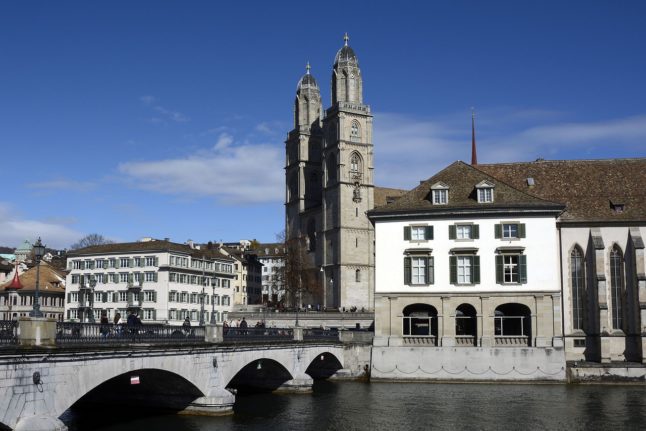From June 26th, the requirement to work from home has been wound back in Switzerland.
If you have been working from home for most of the pandemic and are now heading back to your place of employment, you may have forgotten what it is like to work in the office.
Or maybe you are a new arrival to Switzerland and are not sure what the local rules are and how you can fit into the work culture without sticking out like a sore thumb.
Of course, there are some workplaces in Switzerland that are casual (though “Swiss casual” is not quite the same as, say, “Italian casual”).
But we will focus on the most common type of business — the formal one, which is the kind the Swiss seem to feel most comfortable in.
Here are four things about Swiss work culture that will shock or surprise you (or both):
You had me at hello
In many ways, the business environment is a microcosm of Swiss society in general. In other words, it reflects the prevailing customs across the country.
As the Swiss are sticklers for proper greetings — rather than a casual “hey” — this is one skill you have to master, especially in formal offices.
When arriving in the morning you must therefore greet your co-workers in the language of your region (grüezi, bonjour, or buongiorno) and add their name to the greeting — either the first name, if you are well acquainted, or last name, if that’s your office’s policy.
But sneaking in quietly like a thief in the night without saying a proper hello is not going to cut it in Switzerland.
Fix up, look sharp
Depending on where you work and whether you are in contact with clients, the dress code may vary from “formal” to “smart-casual” — meaning that you don’t have to wear a suit and a tie, but still be attired appropriately for the business environment, from head to toe.
Mismatched clothes and funky hair may be acceptable if you are employed in a circus, but this attire doesn’t belong in a mainstream workplace, where you may be regarded as a buffoon and not taken seriously if you show up in such a get-up.
Employers don’t care about your right to express your individuality and creativity through your clothing; they care about not scaring away clients.
Punctuality is the politeness of kings
The Swiss have punctuality coded into their DNA and coming to work on time — or better yet, ahead of time — is very important.
After all, they all wear Swiss watches, so excuses such as “my watch is running late” or “my watch stopped working” will be met with incredulity.
By the same token, excuses like “my train / bus / tram / was late” would not ring true in Switzerland either (though they may be totally justifiable in other countries).
An illness, doctor’s appointment, or death in the family, on the other hand, are acceptable reasons for being late, or not coming to work at all.
And there is another excuse which will more likely than not be accepted by your employer — but only in Switzerland.
Just ask Ellen, an American living in a small Swiss village near Lake Geneva.
She told The Local she was driving to work one morning when she saw a herd of goats walking down the narrow street, being led from their barn to the nearby pasture.
The procession was taking a long time and Ellen started to worry not only about being late, but also about what excuse she will give her boss.

In the end, she decided that honestly was the best policy and told her employer the truth.
To her surprise, he was totally understanding because, as he said, goats and cows are frequent traffic stoppers in Switzerland.
READ MORE: EXPLAINED: Why are cows so important in Switzerland?
It is common for Swiss businesses to close between noon and 13:30 to allow their employees to have a proper lunch, either in a restaurant or at home, if they live nearby.
Swiss restaurants are typically full during lunchtime as groups of employees eat their meals together (at least this was the case before the pandemic).
When she first started to work in a Swiss office, the aforementioned Ellen did what she used to do back in the US — she brought her sandwich and ate at her desk while she worked.
Her co-workers were giving her sidelong glances, until Ellen’s boss finally told her to go home and have a proper meal.
Ellen obliged, even though she became concerned that a herd of goats will block her car on the way back to work.
READ MORE: Eight ways to make sure you get along with your Swiss neighbours



 Please whitelist us to continue reading.
Please whitelist us to continue reading.
Member comments